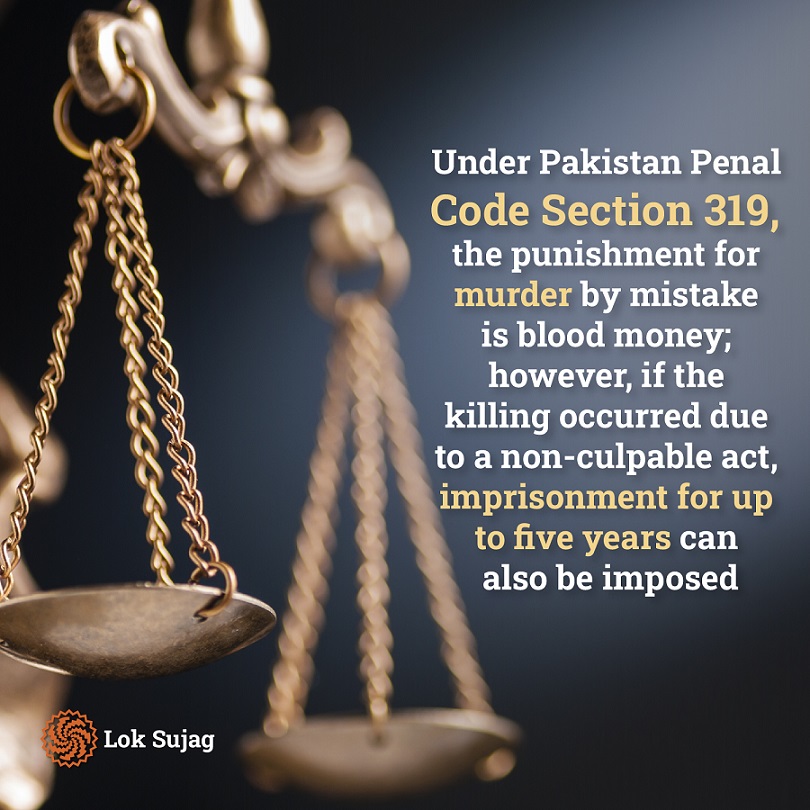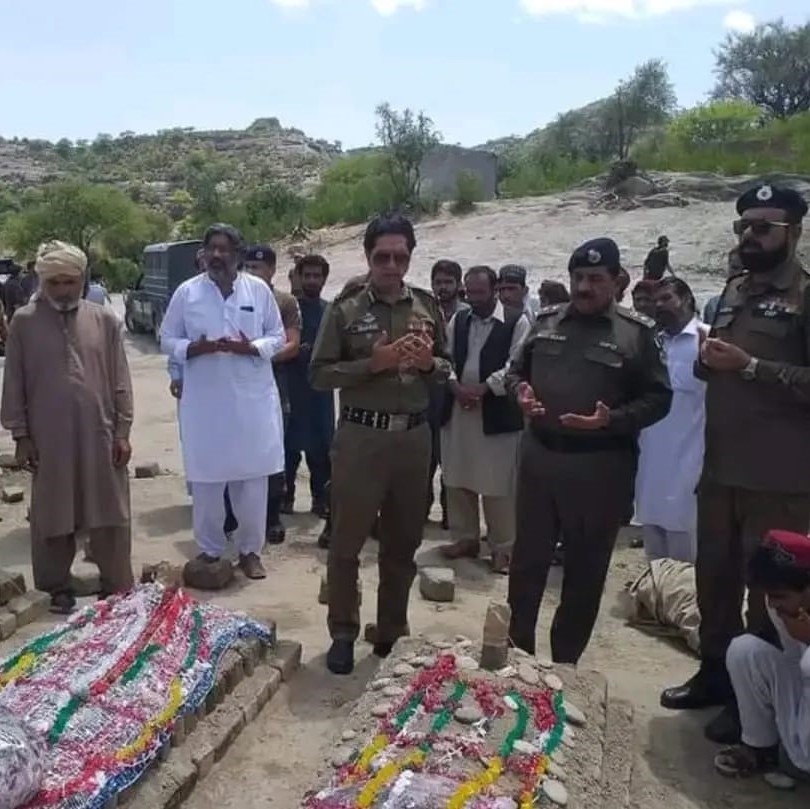On May 2 of this year, the police shot and killed three young men in Esa Khel, a district of Mianwali. Amir Sahil and his brother, Masoor Allah, along with their cousin Anser Khan, were returning home on a motorcycle during the evening.
As they approached the checkpoint of Mato Khel, the officers opened fire on them without any warning or apparent justification, resulting in their untimely death.
Amir Sahil, one of the deceased, served in the Pakistan Army, while his brother Masoor Noor and cousin Anser Khan were students of the tenth-grade class. The slain individuals were affiliated with the Khattak tribe.
The police registered a case of this incident under the claim of an SHO (Station House Officer) at the Bangi Khel police station. According to the details mentioned in the FIR (First Information Report), the police officers had set up a checkpoint with the intention of arresting suspected wanted criminals.
“During this time, there was an exchange of fire between the police and the suspects, resulting in the death of all three passengers." Muhammad Arif Khattak, a relative of the deceased, stated in a press conference following the incident that the police had directly fired at all three, leading to their martyrdom. He demanded a judicial inquiry into the matter.
On May 7, the people from the Khattak tribe and residents of the nearby areas gathered at Tola Chowk to hold a grand jirga, during which their demands were reiterated.
Following the jirga's demands for a judicial inquiry, the RPO (Regional Police Officer) of Sargodha Division, Shariq Kamal, participated in the jirga along with DPO (District Police Officer), Mianwali, Muteeullah Khan and acknowledged the police’s mistake.
On this occasion, they also sought forgiveness from the members of the jirga and made an announcement that the plaintiffs can file any FIR and they are free to nominate any officer in the case.

The RPO also made an announcement to pay five lac rupees to the heirs of the deceased.
During this event, a 21-member jirga decided that if the compensation was paid to the heirs of the deceased, the incident could be pardoned by declaring it an unintentional killing.
The police officers accepted the jirga’s demand and decided to pay eighty lac rupees as compensation. This amount was paid by the nine officers involved in the checkpoint firing.
After settling the matter in the jirga, the police also sacrificed three buffaloes, bringing the issue to a resolution.
After this incident, it came to light that the RPO paid five lac rupees to the heirs of the deceased from the Police Martyrs Fund. This amount is specifically designated for the families of police martyrs. To verify this information, an inquiry was made to the Finance Department of the RPO office in Sargodha.
On the condition of anonymity, one officer explains that the RPO did not disburse this amount from the Police Martyrs Fund but instead collected it from various other funds and then provided it to the heirs of the deceased.
In Mianwali, a police officer from the CIA (Crime Investigation Agency) informs Lok Sujag that compensation payments are usually made in exchange for reconciliation in such incidents.
“The police themselves do not make compensation payments; rather, it is the responsibility of the accused officers. The police department only ensures that no disciplinary action is taken against the accused officers, and they are reinstated to their duties.”

He mentions that even in this incident, no action was taken against the accused officers after reconciliation.
“However, after a few days, a video surfaced showing those officers attending a musical gathering with some wanted criminals. Based on this video, all the officers involved were dismissed from their positions.”
According to Pakistan Penal Code, section 319, blood money should be given as a punishment for murder by mistake. However, if the killing occurred due to a non-culpable act, the perpetrators could also face imprisonment for up to five years.
Ishaq Awan, a practising lawyer in the District Courts of Mianwali, states that after such an incident if an FIR has been filed and the heirs of the deceased agree to reconcile in exchange for compensation, all the claimants are summoned to the court. There, all the legal heirs of the deceased sign a written forgiveness document in front of the judge, and only then the process of forgiveness is completed
Also Read

Putting children in jail: Ruining young lives through a flawed system of crime and punishment.
However, the heirs can still verbally forgive the accused if an FIR has not been filed. “Since no FIR was registered against the police in this incident, reconciliation was achieved outside the court without any written formalities.”
Abdul Hameed Awan, a lawyer practising cases related to human rights in the District Courts of Mianwali, states that the killing of innocent people at the hands of the police or other security agencies is a grave violation of human rights.
However, whenever such incidents occur in Pakistan, reconciling with the government is often considered a better option.
"Generally, in exchange for compensation, the forgiveness for the act of killing is granted, and when an agreement is reached between the claimants and the police, the court also accepts it."
He says, "Because of this legal convenience, the fear of severe punishment does not persist, which is why such incidents occur repeatedly."
Published on 20 Jul 2023



















